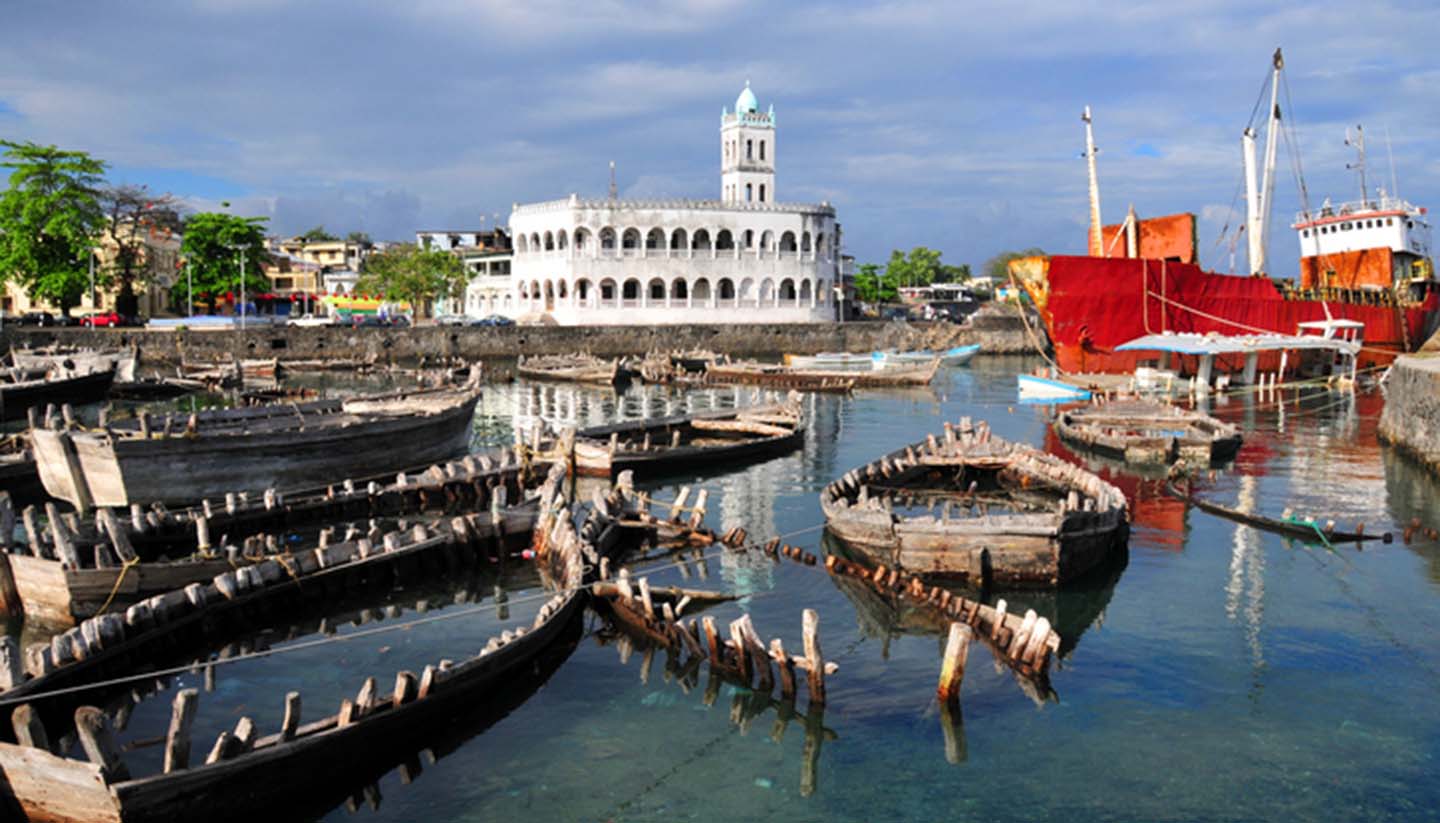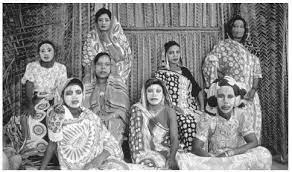The Comoros/The Union of The Comoros is an Island Nation in the Indian Ocean. The country consists of three islands in the volcanic Comoros archipelago: Njazidja, Mwali, and Nzwani. Comoros also lays claim to Mayotte (Mahoré), a neighboring island in the Comoro archipelago that remains a French Overseas Territory.

The Comoros is notable for its diverse culture and history, as a nation formed at the crossroads of many civilizations. It has three official languages Comorian (Shikomor), Arabic, and French. It's name is derived from the Arabic word qamar ("moon"), as seen depicted on it's flag. However, The Comoros/The Union of The Comoros has had a troubled history since independence in 1975, with an inordinate number of coups.
In the 15th century, Arabs settled on what are now known as the Comoros Islands. The islands were ceded to the French in 1841 and became a French protectorate in 1886, before being formally adopted as colonial possessions in 1912. The Comoros was then governed as part of Madagascar until 1947, when they became a separate French Overseas Territory.

Internal self-government was granted in 1961, although full independence was not achieved until 1975. The main reason was the position of Mayotte, one of the original Comoros island group, which insisted upon retaining its links with France. With Mayotte going its own way, the Comoros joined the United Nations as the Federal Islamic Republic of the Comoros, comprising three islands: Grande Comore, Anjouan and Moheli.
Ahmed Abdallah was elected as the first president, but within months, Abdallah was overthrown. However, in 1978, with the assistance of French mercenaries, Abdallah regained his position, though his success was short-lived, he was assassinated the following year.
A confusing series of coups and counter-coups ensued for the next decade or so, many led by Bob Denard, a French soldier, and mercenary. Although Denard's last attempt was suppressed by French troops despatched from Reunion, he had previously overthrown presidents with the open support of the French government.
Elections successfully took place in 1996, and the new government of Abdoulkarim Taki was determined to introduce Islamic law to the islands. This was fiercely resisted in many quarters.
President Taki died in 1998 and was replaced by Ben Said Massounde. The new government was overthrown in a military coup led by Colonel Azali Assoumani in 1999, which was the country's 18th coup. During the next two years, the military government laid plans for a new constitution that would maintain the group as a single country but with much greater autonomy afforded to the individual islands. In 2001, it was approved in a national referendum.
The following year, Assoumani was declared president of the newly entitled Union of Comoros. The handover of power to his successor in 2006 was the first peaceful change of leadership in the country’s history.
Since independence, the Comoros Islands have averaged a coup every 22 months, giving it the nickname "cloud coup coup land".
Comoros is considered one of only two electoral democracies in the Arab world.
Geographically and historically part of the Comoros, the island of Mayotte voted to remain part of France. It is one of the European Union's outermost regions.
Culture
Religion
Muslim (mostly Sunni) with a Roman Catholic minority.
Social Conventions
Religious customs associated with Islam should be respected. Although Comorans are tolerant towards other cultures (for instance, alcohol is not banned and is available in hotels and restaurants), they expect moderate behavior from non-Muslim visitors, such as no consumption of alcohol in public places and modest dress in public.
Language
The official languages are French, Arabic, and Comorian, a blend of Arabic and Swahili.





